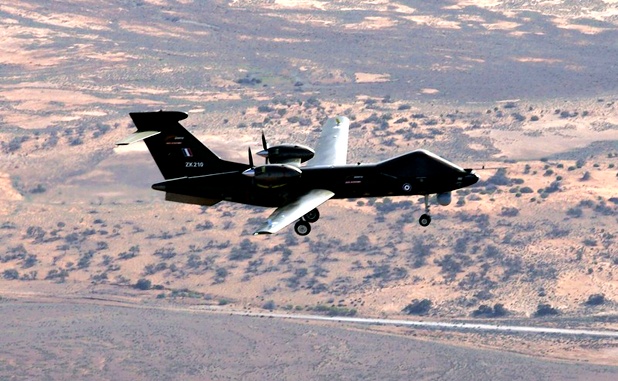European Firms– But Not British — Plead For Help To Build UAVs
Posted on
PARIS AIR SHOW: If you think times are tough in the United States defense world, consider that three of Europe’s biggest defense companies, where defense budgets have been on a downward trajectory for a decade, have issued a plea for help building a European medium altitude drone.
In a press release sent out simulatenously in Paris, Munich and Turin, the continent’s three defense giants — EADS, Dassault Aviation and Finmeccanica — virtually begged their governments for assistance.
“Such a joint program would support the capability needs of European armed forces while optimizing the difficult budgetary situation through pooling of research and development funding,” they said. You can almost hear the, pretty please at the end.
The French military, alarmed by its experiences in Mali and Libya, has made very public its need for unmanned aircraft to improve its intelligence, surveillance and reconnaissance capability.
Germany canceled plans last month to buy five Euro Hawks, jointly developed by EADS and Northrop Grumman of the United States. Why? They were really expensive, costing more than $1.3 billion.
NATO has long recognized the need for UAVs and decided to buy five Global Hawks at the 2012 Chicago Summit. If you see the list of countries expected to buy the Alliance Ground Surveillance System — Bulgaria, Czech Republic, Denmark, Estonia, Germany, Italy, Latvia, Lithuania, Luxembourg, Norway, Romania, Slovakia, Slovenia and the United States — you will note that none of the countries who issued the MALE statement are included.
As a carrot, the three companies said “European sovereignty and independence in the management of information and intelligence would be guaranteed,” And, as happens with virtually every defense program in Europe, where the splintered market depends on the bait of jobs to win approval for almost every program (military requirements aren’t nearly enough here) the companies, pledged — surprise — good, high tech jobs.
As sweetener, the companies also said they would design in to the aircraft technologies that would answer the problem that has bedeviled drone makers here and in the US — the ability to convince policymakers that they are safe flying around in the same airspace as civilian planes with lots of people sitting in them.
The new drone — if any money should be forthcoming — would be designed from the get go to allow “their safe passage and operation in European air space,” the statement says.
As ever with European defense, there is a political fly in the ointment. British companies — especially BAE Systems — are not included in the mix despite the fact that the United Kingdom signed an agreement with France three years ago to cooperate on technologies such as drones (RPAs).
Subscribe to our newsletter
Promotions, new products and sales. Directly to your inbox.

